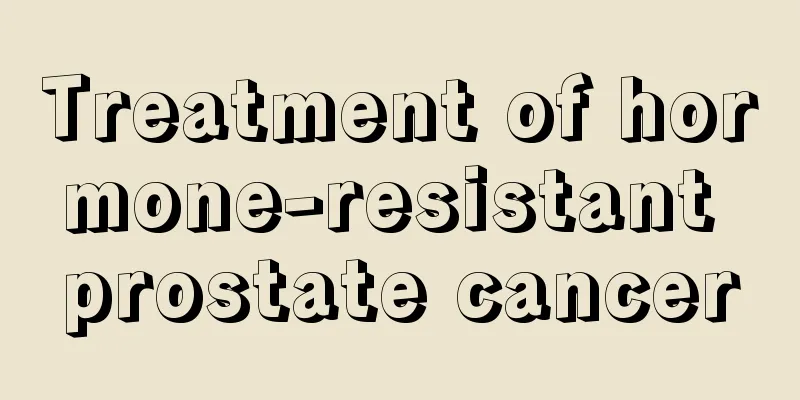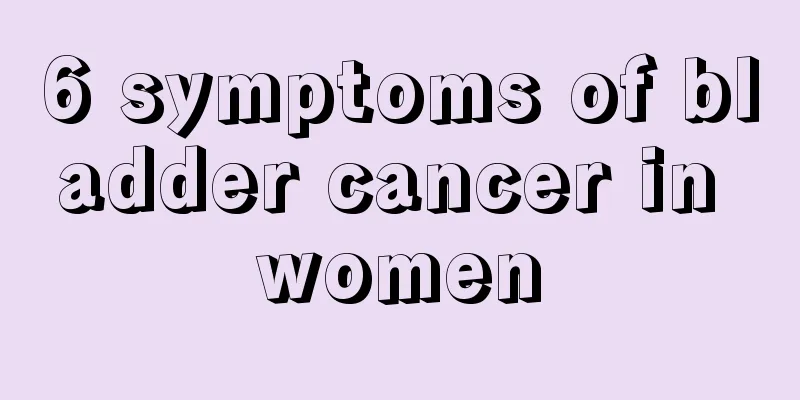Treatment of hormone-resistant prostate cancer

|
After being diagnosed with prostate cancer, male patients must go to a regular hospital for treatment in a timely manner. Don't delay going because of face problems, delaying the treatment and regretting it later. Therefore, prostate cancer patients must receive timely treatment and relieve the pain as soon as possible through the treatment method that suits them. Let's take a look at the treatment of hormone-resistant prostate cancer. Definition of hormone resistance The following conditions must be met simultaneously: 1. Plasma testosterone reaches castration level (usually defined as castration level <50ng/ml); 2. Plasma PSA measured three times at intervals of 2 weeks increases successively; 3. Stop taking anti-androgenic drugs for at least 4 weeks (Casodex needs to be stopped for at least 6 weeks); 4. PSA continues to rise despite second-line endocrine therapy; or bone or soft tissue lesions continue to progress. The mechanism of androgen resistance or hormone independence has not been clearly elucidated, and the main possible hypotheses are: 1. Selective growth of hormone-resistant prostate cancer cell clones; 2. Androgen receptor mutation; 3. Prostate cancer cells adapt to the emasculation environment; 4. Changes in signal transduction pathways in prostate cancer cells; 5. Upregulation of anti-apoptotic genes, etc. (1). The treatment of hormone-resistant prostate cancer (HRPC) is a multidisciplinary, multi-strategy comprehensive treatment. 1. Maintaining androgen deprivation therapy If the patient's blood testosterone does not reach <50 ng/ml, LHRH-a (luteinizing hormone-releasing hormone analog) should be continued to ensure that blood testosterone is maintained at castrate levels (4, 5). 2. Chemotherapy For a long time, prostate cancer has been considered a malignant tumor that is insensitive to chemotherapy. Between 1988 and 1992, 26 single chemotherapy drugs were used to treat prostate cancer, with an overall response rate of only 8.7% and a median survival time of 10-12 months. The efficacy was disappointing; and chemotherapy brought many toxic side effects, which once made chemotherapy neglected. The emergence of docetaxel has opened up a new prospect for chemotherapy of prostate cancer. The two phase III clinical trials TAX327 and SWOG9916 reported at ASCO in 2004 have established the first choice of chemotherapy with docetaxel as the core in the treatment of HRPC. |
<<: The most effective way to treat prostate cancer
>>: How to treat prostate cancer in the elderly
Recommend
The difference between Coprinus comatus and Pleurotus eryngii can be divided into three aspects
What is the difference between Coprinus comatus a...
Young people have high blood pressure
Hypertension is a common disease in life, but mos...
The difference between soybean oil and salad oil
When people cook food, oil is the most indispensa...
What health products should elderly people with gastric cancer take
Gastric cancer patients must pay more attention t...
Acid machine principle
Yogurt is undoubtedly a favorite of many people. ...
What causes dizziness while running?
Modern people are paying more and more attention ...
What is fish maw? It has many benefits
Fish maw is a very nutritious food and a luxury f...
Is hair loss a sign of kidney deficiency?
Many friends may have symptoms of hair loss. When...
What to do if you drink gasoline
Gasoline is a fuel. At present, most cars still n...
Applying aloe vera gel on face causes stinging
Many female friends often experience tingling and...
What types of advanced gastric cancer can be divided into?
What types of advanced gastric cancer can be clas...
What is Ethyl Lactate?
For most people, ethyl lactate is a very unfamili...
Is rectal cancer highly hereditary?
For some diseases, the most confusing thing is th...
How often should I use conditioner?
Most people usually use conditioner when washing ...
What medicine is good for viral influenza
Flu is also commonly known as influenza. Viral fl...









